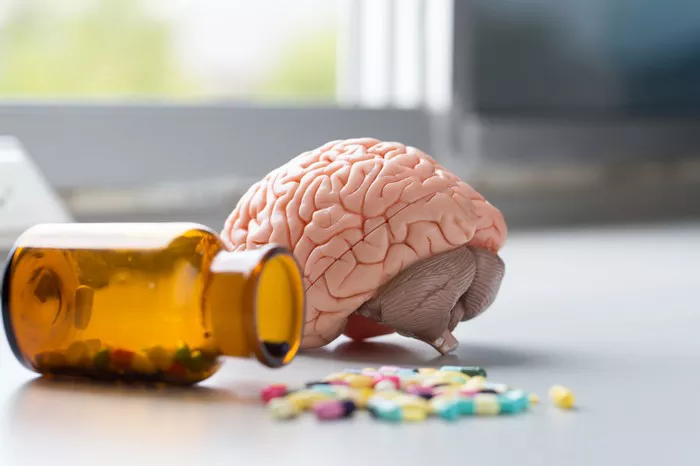Mental health is an integral part of overall health, yet it often does not receive the same attention as physical health. Early intervention and awareness are crucial in managing mental health issues effectively. This comprehensive article aims to shed light on the early warning signs of mental health problems, offering insights into recognizing symptoms in oneself or others. Increased awareness can lead to timely support, treatment, and a better overall prognosis.
The Importance of Early Detection
Early detection of mental health issues can significantly alter the course of an individual’s life. It can prevent the progression of mental health disorders and minimize the impact on work, relationships, and overall quality of life. Recognizing early signs is not only beneficial for the individual but also for their families and communities as it reduces the long-term social and economic burden.
Common Mental Health Disorders and Their Impact
Before delving into the warning signs, it is important to understand some common mental health disorders and their potential impact on individuals and society:
Depression: Characterized by prolonged feelings of sadness and loss of interest, this can severely affect one’s daily functioning.
Anxiety Disorders: These include generalized anxiety disorder, panic disorder, and social anxiety disorder, involving excessive fear or worry.
Bipolar Disorder: A disorder associated with extreme mood swings, including emotional highs (mania or hypomania) and lows (depression).
Schizophrenia: A serious mental disorder characterized by distorted thinking, perceptions, emotions, language, sense of self, and behavior.
Eating Disorders: Including anorexia nervosa, bulimia nervosa, and binge eating disorder, these involve serious disturbances in eating behaviors and related thoughts and emotions.
Understanding these disorders provides a foundation for recognizing the signs and symptoms that may indicate a developing mental health issue.
General Early Warning Signs of Mental Health Problems
Recognizing early warning signs in mental health can be challenging as symptoms often develop gradually. Here are some general signs to watch out for:
Withdrawal: Pulling away from social interactions, activities, or family gatherings.
Drop in Functioning: An unusual drop in functioning at school, work, or social activities, including sports.
Problems Thinking: Problems with concentration, memory, or logical thought and speech that are hard to explain.
Increased Sensitivity: Heightened sensitivity to sights, sounds, smells or touch; avoidance of over-stimulating situations.
Apathy: Loss of initiative or desire to participate in any activity.
Feeling Disconnected: A vague feeling of being disconnected from oneself or one’s surroundings; a sense of unreality.
Illogical Thinking: Unusual or exaggerated beliefs about personal powers to understand meanings or influence events; illogical or “magical” thinking typical of childhood in an adult.
Nervousness: Fear or suspiciousness of others or a strong nervous feeling.
Unusual Behavior: Odd, uncharacteristic, peculiar behavior.
Sleep or Appetite Changes: Dramatic sleep and appetite changes or decline in personal care.
Mood Changes: Rapid or dramatic shifts in feelings.
Specific Signs in Major Mental Health Disorders
Each mental health disorder has specific signs that can indicate an issue is developing:
Depression
Persistent Sadness or Low Mood: This is not just feeling blue; it is a prolonged period of feeling sad, hopeless, or helpless.
Loss of Interest in Activities: Losing interest in activities once enjoyed, including sex and hobbies.
Changes in Weight: Significant weight loss or gain without dieting.
Sleep Disturbances: Insomnia or sleeping too much.
Energy Loss: Persistent lethargy, tiredness, and a lack of energy.
Unexplained Aches and Pains: Increased physical complaints such as headaches, back pain, aching muscles, and stomach pain.
Anxiety Disorders
Excessive Worrying: Worrying excessively about different things, that is difficult to control.
Agitation: Feeling keyed up or on edge, experiencing restlessness.
Restlessness: A feeling of being unable to relax.
Fatigue: Feeling overly tired, low energy.
Difficulty Concentrating: Mind going blank or unable to focus the mind.
Irritability: More frequent irritation or overreactions to small issues.
Sleep Problems: Trouble falling asleep or staying asleep; restless, unsatisfying sleep.
Bipolar Disorder
Elevated Mood: Periods of excessively high energy, with hyperactivity and reduced need for sleep.
Depressed Mood: Periods of low energy and disinterest in life, that are different from the person’s usual self.
Irritability: High levels of agitation and irritability; patients often feel “jumpy” or “wired.”
Rapid Speech: Fast, frenetic talking that jumps from topic to topic.
Impulsivity: Making poor decisions that seem out of character.
Schizophrenia
Hallucinations: Hearing voices or seeing things that aren’t there.
Delusions: False beliefs that are not part of the individual’s culture and do not change.
Thought Disorder: Odd or illogical thinking.
Disorganized Behavior: This might show in a number of ways, including being childlike or unpredictable, and having difficulties maintaining routine activities such as grooming or cooking.
Eating Disorders
Extreme Dieting or Exercise: Severe restriction of food intake or excessive exercise.
Binge Eating: Eating large amounts of food rapidly.
Purging Behaviors: Frequent trips to the bathroom after meals, signs of vomiting or laxative use.
Distorted Body Image: Persistent dissatisfaction with appearance, body type, or weight.
When to Seek Help: Recognizing the Need for Professional Intervention
It’s crucial to seek help if you or someone you know is displaying any of the above signs. Early intervention can be key in treating mental health disorders effectively. Consultation with a healthcare provider can lead to diagnosis and a tailored treatment plan that may include therapy, medication, or other supportive measures.
Conclusion: Embracing Awareness and Advocacy for Mental Health
Recognizing the early warning signs of mental health problems is the first step towards recovery. By staying informed and vigilant, individuals can seek the necessary help to manage symptoms effectively. Society as a whole benefits when its members are mentally healthy and aware. Thus, fostering an environment where mental health is openly discussed and treated with the same urgency and care as physical health is essential.
[inline_related_posts title=”You Might Be Interested In” title_align=”left” style=”list” number=”6″ align=”none” ids=”8525,8522,8519″ by=”categories” orderby=”rand” order=”DESC” hide_thumb=”no” thumb_right=”no” views=”no” date=”yes” grid_columns=”2″ post_type=”” tax=””]































